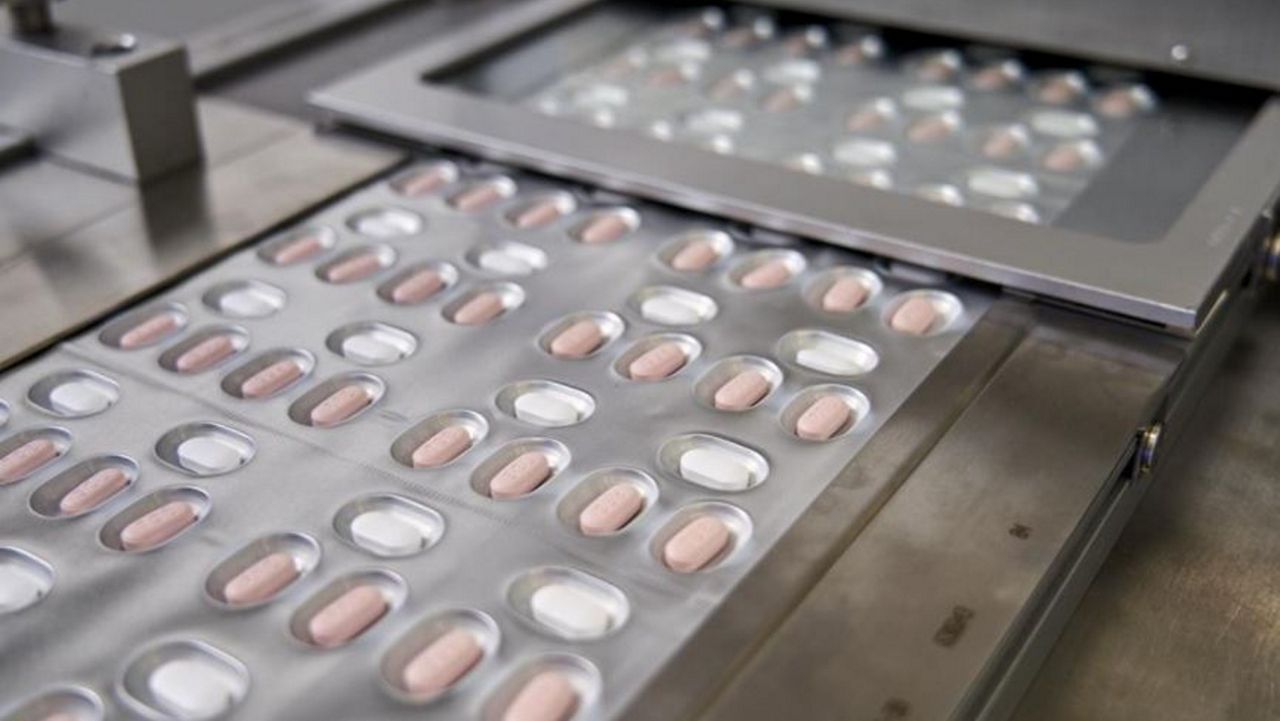Pfizer said Tuesday that its oral antiviral COVID-19 treatment appears to be effective against the omicron variant, a welcome sign for what could be a game-changing treatment against the pandemic.
The company shared results from lab studies which show that the pill, known as Paxlovid, "has the potential to maintain plasma concentrations many-fold times higher than the amount required to prevent Omicron from replicating in cells."
Pfizer said that nirmatrelvir, the main ingredient in Paxlovid, held up in three separate lab studies. Nirmatrelvir inhibits a SARS-CoV-2 protein to stop the virus from replicating, while ritonavir slows down the drug's breakdown to help it stay in the body for longer.
Patients take two tablets of nirmatrelvir and one tablet of ritonavir twice a day for five days during the course of treatment.
The U.S. Food and Drug Administration authorized the treatment last month after clinical trials showed that it was 89% effective at reducing the risk of hospitalization or death in high-risk patients. But the omicron variant raised concerns that some treatments may not be as effective because of its complex constellation of mutations.
Mikael Dolsten, Pfizer's Chief Scientific Officer and President of Worldwide Research, Development and Medical for the company, said that the pill was specifically designed to "retain its activity across coronaviruses" in addition to "current variants of concern with predominantly spike protein mutations."
"Following the clinical findings – showing PAXLOVID reduced risk of hospitalization or death by nearly 90% compared to placebo for high-risk patients when treated within five days of symptom onset – we are encouraged by these initial laboratory findings," Dolsten said. "These data suggest that our oral COVID-19 therapy can be an important and effective tool in our continued battle against this devastating virus and current variants of concern, including the highly transmissible Omicron."
The Biden administration has doubled its order of Pfizer's treatment to 20 million courses, but supply has been limited due to manufacturing constraints. Roughly 200,000 treatment courses have been distributed in the U.S. so far.



